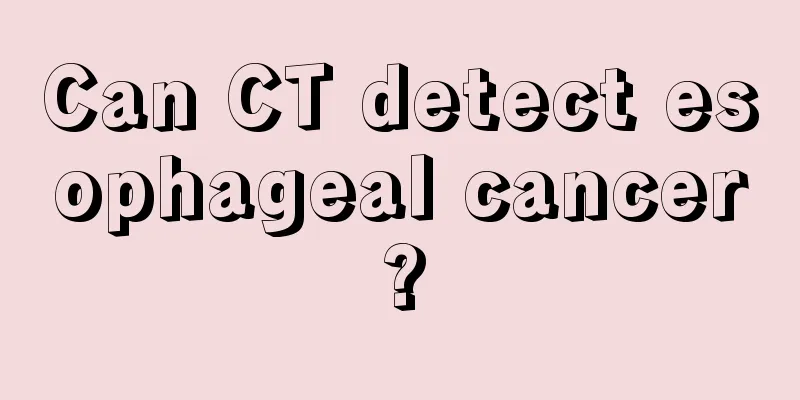Can CT detect esophageal cancer?

|
CT scans can detect esophageal cancer, but usually require other examination methods such as endoscopy and biopsy for a definitive diagnosis. CT scans are mainly used to assess the extent and stage of esophageal cancer, such as determining whether the tumor has spread to lymph nodes or other organs. 1The role of CT in the examination of esophageal cancer CT scan is a non-invasive imaging technique that can clearly show the chest structure, including the esophagus, surrounding tissues and adjacent organs. Its role in the diagnosis of esophageal cancer mainly includes the following two points: Identify the location and size of the tumor: CT can initially show irregular masses or regional esophageal wall thickening on the esophagus, and is an important tool for screening cancer. Assess the spread of cancer: CT can detect whether the tumor has invaded other tissues, such as the mediastinal organs, the lungs, and whether there are metastases in nearby lymph nodes or distant organs. Although CT is of great value in positioning and staging assessment, it cannot directly determine whether the lesion is cancerous, which requires more precise means to supplement the diagnosis. 2. Other inspection methods that need to be combined Endoscopic examination: By inserting a soft endoscope, the lesions in the esophagus are directly observed to determine the shape, color and even appearance of the tumor whether it is malignant. Biopsy pathology examination: The esophageal tissue sampled during endoscopy is sent to the laboratory for microscopic observation, which is the gold standard for diagnosing esophageal cancer. PET-CT: Used to more accurately detect possible cancer cell metastasis throughout the body and provide a basis for surgical and treatment strategies. 3. What to do after suspected cancer is found by CT If the CT scan shows suspicious esophageal lesions, the patient needs to undergo further examination as soon as possible. After the diagnosis is confirmed, the appropriate treatment method is selected according to the condition: Surgical treatment: Suitable for patients with early-stage cancer, including minimally invasive or traditional open surgery, such as thoracoscopic esophagectomy. Chemoradiotherapy: Patients with advanced esophageal cancer may consider concurrent chemoradiotherapy to help shrink the tumor and relieve symptoms. Targeted therapy or immunotherapy: Suitable for patients with specific pathological gene mutations, it works by inhibiting the growth of cancer cells. CT can detect the possibility of esophageal cancer, but its diagnostic value lies in assisting staging assessment and screening for high-risk. Confirmation requires the combination of endoscopy and pathological biopsy results. Once an abnormality is found, it is important to complete the examination as soon as possible and develop a personalized treatment plan to improve the cure rate and quality of life. |
<<: What are the early symptoms of colon cancer
>>: What causes uterine teratoma
Recommend
What are the B-ultrasound manifestations of lower limb blood vessels
In today's social life, the existence of a ch...
Does eating seafood make you fat?
Seafood is a very popular food because it not onl...
What is missing if the skin is dry all over the body
People's skin is easily affected by the exter...
Is it easy to treat vulvar leukoplakia in the early stage
Vulvar leukoplakia is a serious problem that plag...
What medicine should I take for gonorrhea? Introduction to treatment methods
If gonorrhea is without complications, the medica...
What to do if edema occurs after unilateral resection of thyroid cancer
Edema after unilateral resection of thyroid cance...
There are 5 fire-removing points on the human body
toothache As the saying goes, "A toothache i...
What are the precautions for swimming
Swimming is a gradual process. It consumes a lot ...
Solutions to 9 common office problems
1. Headache is not a trivial matter Symptoms: The...
What are the fruits that replenish qi and blood
Qi and blood are very important to us, especially...
How to treat odd-shaped blood vessels
Vascular malformation is a disease caused by abno...
Is it okay to apply milk on the face
Milk has many benefits and high nutritional value...
Early screening process for gastric cancer
Currently, there is no simple and effective diagn...
What are the benefits of doing chest expansion exercises
Exercise is a very important thing in life, becau...
Itching on the body indicates ten kinds of diseases
Everyone has experienced "itching". Som...









